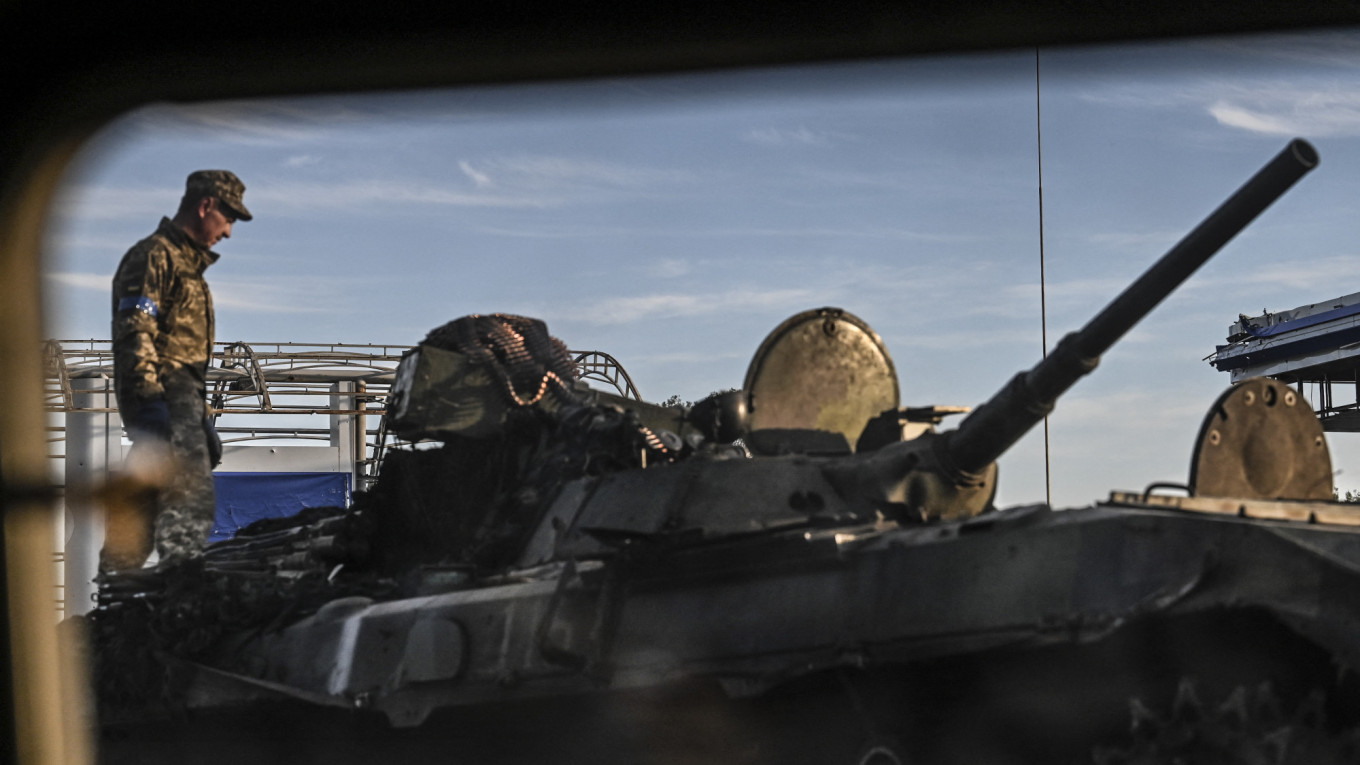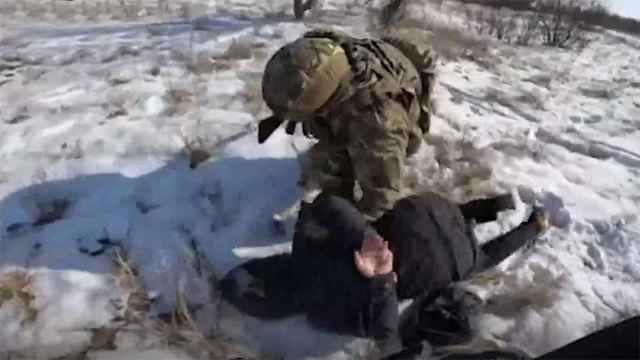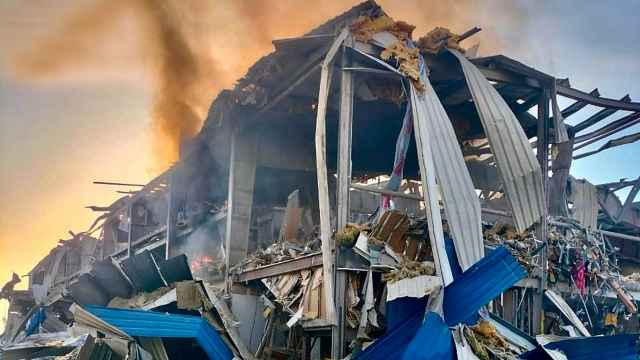Updates with Pushilin comments and Kupiansk seizure.
Kyiv said Saturday its forces were making lightning gains in the east of the country in a shock counteroffensive to recapture territory that fell to Russia shortly after Moscow's February invasion.
German Foreign Minister Annalena Baerbock meanwhile arrived in the Ukrainian capital for a surprise visit, which she said was to demonstrate Berlin's support for Ukraine in its battle against Russia.
"Ukrainian troops are advancing in eastern Ukraine, liberating more cities and villages. Their courage coupled with Western military support brings astonishing results," Ukrainian Foreign Ministry spokesman Oleh Nikolenko said in a statement on social media.
"It's crucial to keep sending arms to Ukraine. Defeating Russia on the battlefield means winning peace in Ukraine," he added.
His assessment of the pace of the Ukrainian gains came after President Volodymyr Zelensky announced late Friday that his troops had retaken some 30 towns and villages in the northeastern Kharkiv region as part of the sweep.
Ukraine's push appears to have caught Russian troops largely off guard.
Moscow made the surprise announcement Friday it was dispatching reinforcements to Kharkiv, with images on state media showing tanks and artillery and support vehicles moving in columns on dirt roads.
Denis Pushilin, a pro-Russia separatist official, said Saturday that the situation in the town of Lyman in the Donetsk region was "very difficult" and that there was also fighting in "a number of other localities," particularly in the northern part of the region.
Ukrainian forces said on Saturday they had entered the town of Kupiansk in east Ukraine, a key supply hub that had been held by invading Russian forces for several months.
Ukrainian special forces published images on social media, which they said showed their officers "in Kupiansk, which was and will always be Ukrainian."
A regional official separately posted an image of Ukrainian soldiers in the east Ukrainian town of around 27,000 people and wrote that "Kupiansk is Ukraine."
The capture of urban hubs like Kupiansk and, further south, Izium would be a significant blow to Russia's ability to effectively supply positions on the eastern frontline.
In one village captured by the advancing Ukrainians, electric pylons were toppled and cables strewn lay across the ground and houses were gutted, AFP journalists reported.
"It was frightening," said 61-year-old Anatoli Vasiliev recalling the battle earlier this week that saw Ukrainian forces recapture the village from the Russians.
"There were bombings and explosions everywhere."
Baerbock was in Kyiv on Saturday for her second trip to Ukraine, which comes a week after Ukrainian Prime Minister Denys Shmygal's trip to Berlin where he had repeated Kyiv's call for weapons.
"I have travelled to Kyiv today to show that they can continue to rely on us. That we will continue to stand by Ukraine for as long as necessary with deliveries of weapons, and with humanitarian and financial support," she said.
Over the last weeks, Germany has sent howitzers, rocket launchers and anti-aircraft missiles to Kyiv, part of an arsenal of Western-supplied weapons that observers say have hurt Russia's supply and command abilities.
Baerbock's visit comes on the heels of a trip from U.S. Secretary of State Antony Blinken who promised a nearly $3 billion military package for Ukraine.
In a meeting in Brussels with NATO Secretary General Jens Stoltenberg, Blinken said Russia's push to send reinforcements showed Moscow was paying "huge costs" in its bid to capture and then hold Ukrainian territory.
However, Russian forces were still inflicting serious damage with a campaign of shelling in Kharkiv city and in the industrial region of Donbas in the east.
Oleg Synegubov, the head of the Kharkiv said Russian shelling had left 14 civilians injured.
Pavlo Kyrylenko, the head of the Donetsk region, which is part of Donbas, said Russian shelling meanwhile had left two dead.
A Message from The Moscow Times:
Dear readers,
We are facing unprecedented challenges. Russia's Prosecutor General's Office has designated The Moscow Times as an "undesirable" organization, criminalizing our work and putting our staff at risk of prosecution. This follows our earlier unjust labeling as a "foreign agent."
These actions are direct attempts to silence independent journalism in Russia. The authorities claim our work "discredits the decisions of the Russian leadership." We see things differently: we strive to provide accurate, unbiased reporting on Russia.
We, the journalists of The Moscow Times, refuse to be silenced. But to continue our work, we need your help.
Your support, no matter how small, makes a world of difference. If you can, please support us monthly starting from just $2. It's quick to set up, and every contribution makes a significant impact.
By supporting The Moscow Times, you're defending open, independent journalism in the face of repression. Thank you for standing with us.
Remind me later.






